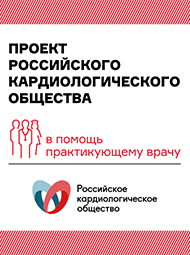Anticoagulation advisable during pregnancy with Fontan circulation
Women with Fontan circulation can successfully complete pregnancy, but an increase in cardiac and neonatal morbidity exists, results by French researchers published in the International Journal of Cardiology show.
With thromboembolic events a complication intrinsic to the technique, which has greatly improved survival for patients with functional univentricular heart, anticoagulation during pregnancy and the postpartum period should be indicated, according to investigators.
“Although anticoagulation therapies during pregnancy are still debated, thromboembolisms were some of the major complications we described during pregnancy or the postpartum period in women with Fontan palliation,” the researchers wrote. “We suggest that all women with Fontan palliation should receive at least prophylactic anticoagulation during pregnancy, and the postpartum period.”
In a retrospective study, Marielle Gouton, MD, of the Adult Congenital Heart Disease Unit, Marie Lannelongue Surgical Center in Le Plessis-Robinson, France, and colleagues followed 37 women with Fontan circulation in 13 specialized centers between January 2000 and June 2014.
The researchers reviewed pregnancies (n = 59), including miscarriages, abortions, premature and term births; the mean age at first pregnancy was 27 ± 5 years. The team also assessed maternal and fetal outcomes.
Overall, there were 16 miscarriages (27%) and 36 live births including one twin pregnancy. Cardiac events occurred in six pregnancies (10%), without maternal death.
Atrial arrhythmia was the most common cardiac complication, occurring in three patients.
Thromboembolic and hemorrhagic events occurred in five women antepartum (n = 2 thromboembolic; n = 3 hemorrhagic) and four women postpartum (n = 1 thromboembolic; n = 4 hemorrhagic); two of the three thromboembolic events occurred in women not receiving anticoagulation.
A high incidence of prematurity (25 of 36 pregnancies, 69%) was observed. Anticoagulation was associated with adverse neonatal outcome (OR = 10; 95% CI, 1.5-91.4). At a median follow-up of 2 years, clinical status and thromboembolic disease did not appear to worsen.
“Preconception counseling and strict multidisciplinary monitoring by obstetrician, cardiologist and anesthetist are recommended,” the researchers wrote. – by Allegra Tiver
Disclosure: Gouton reports no relevant financial disclosures.
Source: www.healio.com






